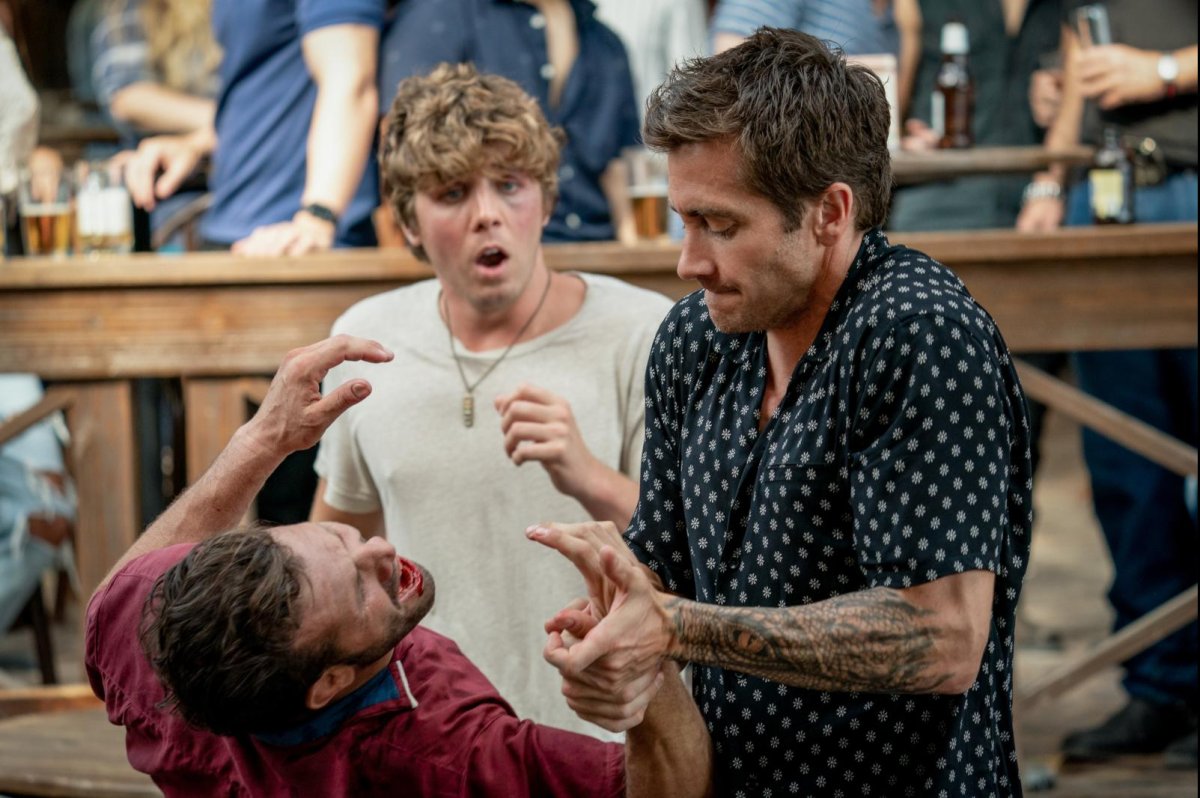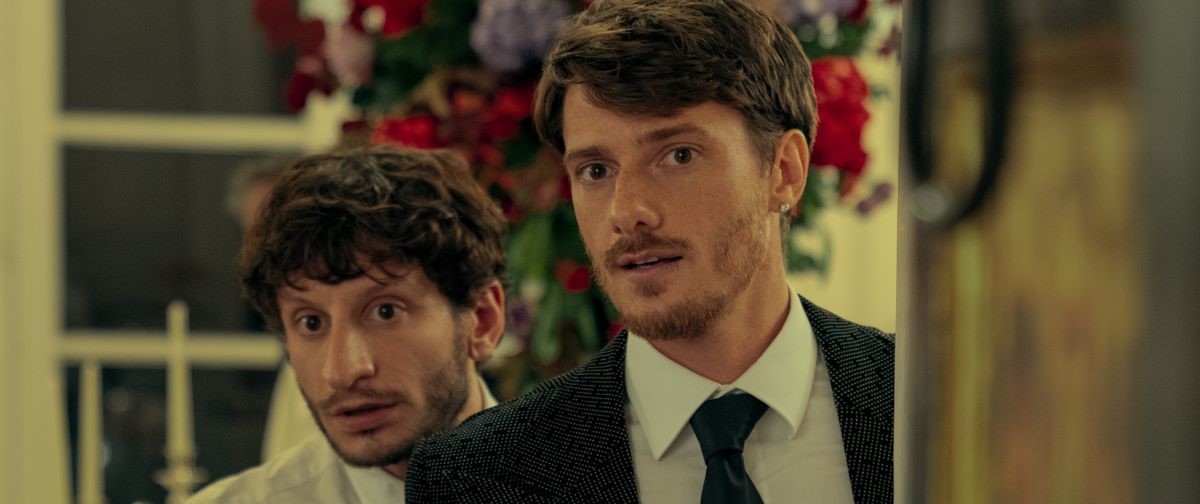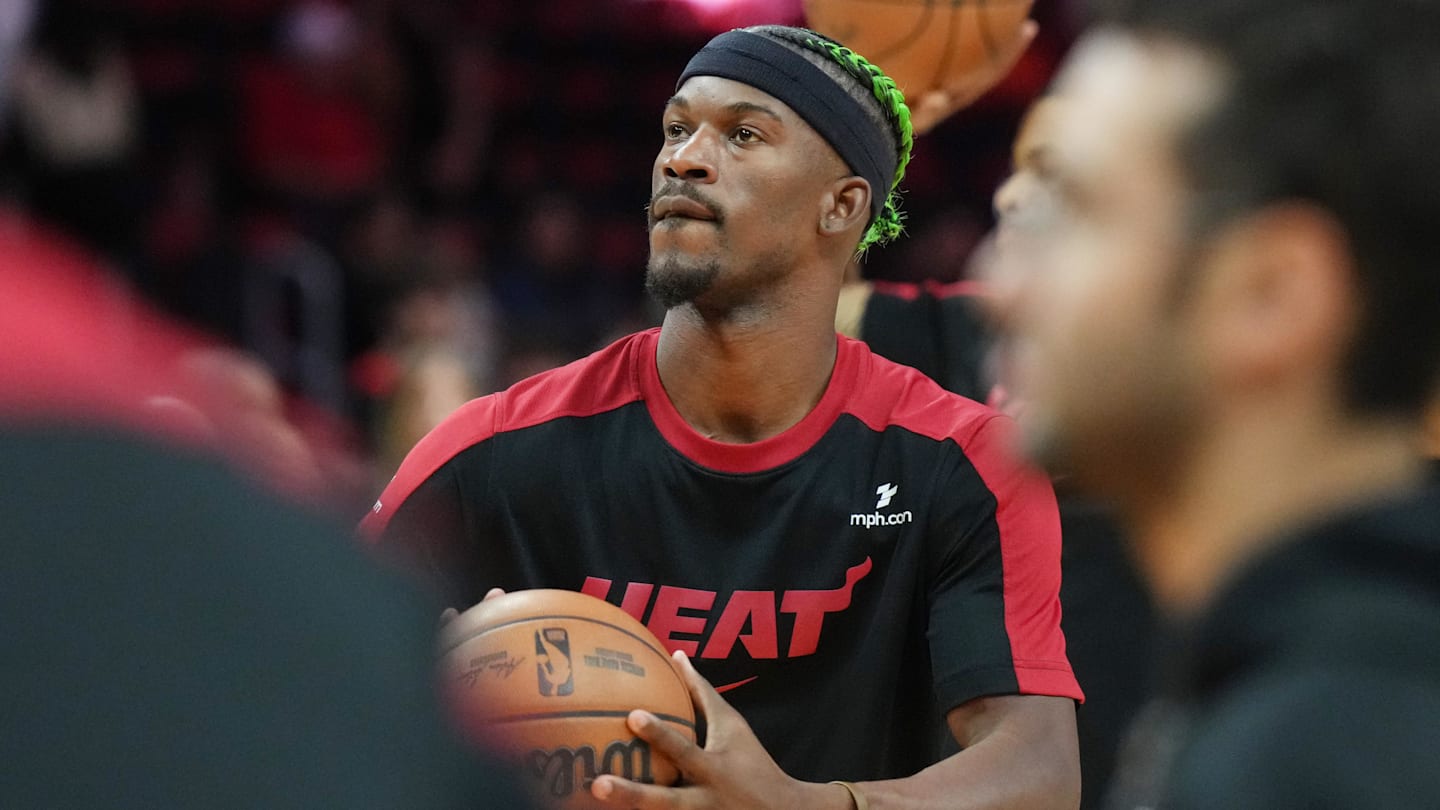At one point in Baby John, a little girl named Khushi (Zara Zyanna) hides under a bed, screaming with fear. Outside, bad guys are pulverizing her caretakers. She can hear the mayhem and anticipate that bad things are coming her way.
The scene made me wonder why her father, the titular Baby John (Varun Dhawan), hadn’t trained her the way that Honey instructs her young daughter Nadia in Citadel: Honey Bunny, also starring Dhawan as Nadia’s father. Nadia is such a pro at dealing with murderous attacks that when one takes place, Honey just tucks her into a trunk, puts headphones on her ears and tells her to listen to the song and not come out.
Baby John
The Bottom Line
Relentless and joyless.
Release date: Wednesday, Dec. 25
Cast: Varun Dhawan, Keerthy Suresh, Jackie Shroff, Wamiqa Gabbi, Rajpal Yadav
Director: Kalees
Screenwriters: Kalees, Atlee, Sumit Arora
2 hours 44 minutes
Incidentally, both Nadia and Khushi belong to a club particular within Indian cinema — that of overtly precocious kids who speak like adults. (I think of the cancer-stricken Sexy from Cheeni Kum as the president of this club.) While it’s meant to be endearing and cute, it often comes off as annoying and manipulative.
All of this is to say that Baby John is the sort of film that pummels you with star power (including a Salman Khan cameo), extravagant visuals, ear-bleeding sound, fantastically gaudy songs and a story that twists and turns with flashbacks, double identities and assorted villains, but despite all that flash fails to hold you. At 161 minutes, it gives you plenty of headspace to wander down rabbit holes and make random associations — like that between Khushi and Nadia.
This was not the case with the source material. Atlee’s 2016 blockbuster Theri was named after the Tamil word for “sparkle,” and it had plenty of it. The director’s signature combination of action, emotion and social commentary worked seamlessly. Leading man Vijay, playing DCP A. Vijay Kumar and his nonviolent alter ego Joseph Kuruvilla, was very much the slick superhero who walks in and out of frame in slow motion, but he could also cry and be tender. In Baby John, Atlee (who serves as producer along with his wife, Priya Atlee) infuses his narrative with steroids. The Hindi remake is bigger and louder, but not necessarily better.
During the promotional campaign for Baby John, we were told to remember that it would be a “Christ-Mass release” — meaning that this would be a mass commercial entertainer, or what director Prashanth Neel refers to as “anti-gravity cinema,” in which coherence, logic and the rules of physics do not apply. What is necessary is delivering what Atlee calls a “stadium moment,” that sense of collective euphoria in a theater. This is a difficult and delicate art of which Atlee is an expert; just recall Captain Vikram Rathore’s entry in Jawan.
Writer-director Kalees isn’t able to deliver these cinematic highs with the same panache, mostly because he strains too hard to create them. Each beat is underlined by music or dialogue, and exaggeration is the default mode. So Dhawan, who has delivered in features as diverse as Dishoom and October, gets multiple moments with the full hero treatment: slow motion, low angles, shades that are removed or thrown on to emphasize swag, action sequences in which he flies and kills without breaking a sweat. But in all of this, the filmmakers forget to make Satya/John distinctive or memorable.
The movie treats the cop avatar with reverence and valorizes police brutality. Satya goes on a murdering spree, torturing and castrating and burning a man alive, but his actions are presented as justified because the men he murders do terrible things — mostly to women, who serve as disposable fodder for violence. Female characters are shot, punched, raped, burnt, trafficked. At various points, young girls are smuggled in containers and even in animal carcasses. All of which only makes the hero look more heroic. In one scene, he is referred to as desh ki ladkiyon ka rakhwala, or protector of Indian women.
Kalees also insists on making the villain larger than life. In Theri, Mahendran gave an effective performance as a corrupt minister who destroys Vijay’s life. He was evil without any additional flourishes. Here, Jackie Shroff has a ball playing Babbar Sher, whose signature move is lounging in a traditional Kerala easy chair which he likes so much that he even carries it to a shipping dock for the climactic showdown. But although Shroff brings a compelling menace, I lost track beyond a certain point of Babbar’s many nefarious activities, and how often and why he is in jail.
(As an aside, can filmmakers find other locations for action? This year, we’ve seen shipping docks as backdrop now in Devara: Part 1, Pushpa 2: The Rule, Singham Again and Yudhra.)
More than anything, Baby John is a showcase for Dhawan, who gets to be the quintessential masala hero. He gets to romance, to be a doting father and a loving son, to do some seriously aerobic dancing and, of course, to fight. At one point, he does a somersault on top of a horse. Appearing in nearly in every frame, he goes at it with a ferocious sincerity. Dhawan’s father, David Dhawan, was a master of masala entertainers, and there is some pleasure in watching the son act his mass-loving heart out. But little sticks because the knotty plot switches from romance to action to abducted girls to flashback so abruptly that it gives you whiplash and glazed eyes.
The two leading ladies — Keerthy Suresh, who makes her Hindi debut, and Wamiqa Gabbi, who makes her mass film debut — don’t get enough to do. Both are fine actors but to see their talent, you’ll have to look elsewhere. I recommend the Telugu picture Mahanati for Suresh and the series Jubilee for Gabbi.
Baby John is relentless and joyless. Christmas needed better mass.



























/cdn.vox-cdn.com/uploads/chorus_asset/file/24982514/Quest_3_dock.jpg)




